On-Demand Outsourcing BPO Services for Healthcare Providers With 24/7 Coverage!
Save up to 70% on staffing costs!
Browse Specialty Staffing Services
How Does Patient Call Tracking Software Ensure Security and Accuracy in Medical Coding Under HIPAA?
Every clinic handles dozens of patient phone calls daily appointment requests, insurance questions, medication refills, billing disputes. But what many practices don’t realize is this: those calls are the starting point for medical coding and billing accuracy. 💬 “We once lost thousands in revenue because the patient’s insurance details from the call weren’t logged correctly.” When calls are mishandled, incomplete, or unsecured, clinics face not just denials but serious HIPAA compliance risks. Patient call tracking software transforms these conversations from
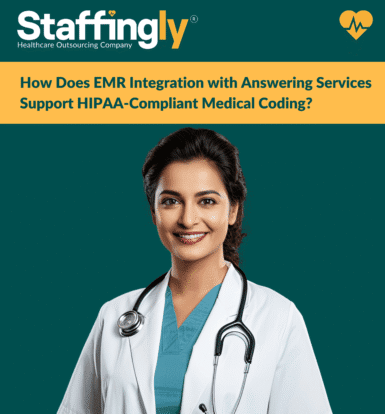
How Does EMR Integration with Answering Services Support HIPAA-Compliant Medical Coding?
Every day, clinics juggle calls, voicemails, and scattered notes that never make it into the EMR. When documentation is incomplete or delayed, coding errors multiply and compliance risks rise. 💬 “I once found three patient messages scribbled on sticky notes instead of logged in the system. It was a coding nightmare.” Answering services keep phones covered. EMRs keep records straight. But when the two don’t talk, gaps appear—and those gaps cost clinics money, compliance, and patient trust. Why Medical Coding
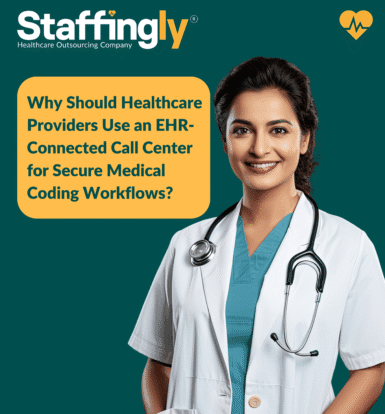
Why Should Healthcare Providers Use an EHR-Connected Call Center for Secure Medical Coding Workflows?
Every call into a clinic holds important details symptoms, medication requests, prior visit updates, or insurance clarifications. Yet too often, those details live only in call notes or voicemail, never making it into the EHR. When documentation is incomplete, medical coding becomes inaccurate, reimbursement slows, and HIPAA compliance is jeopardized. 💬 “We once had a billing error because a patient’s after-hours call was never documented in the EHR.” Without seamless connection between call centers and EHRs, providers risk errors that
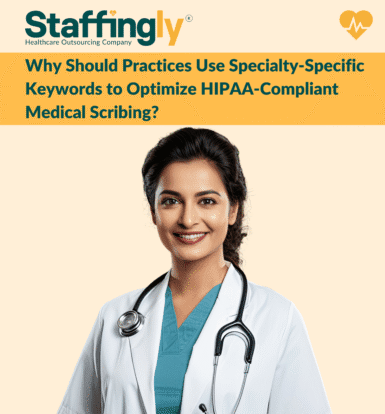
Why Should Practices Use Specialty-Specific Keywords to Optimize HIPAA-Compliant Medical Scribing?
Medical scribing was designed to take paperwork off providers’ plates, but not all documentation is created equal. When scribes fail to use specialty-specific language and keywords, notes become vague, coding accuracy suffers, and compliance risks grow. 💬 “We had to rework multiple notes because they didn’t reflect cardiology-specific terminology. It slowed billing and raised red flags.” The solution isn’t just faster scribing it’s smarter scribing. Specialty-specific keywords help practices capture the right details for coding, compliance, and patient care. Why
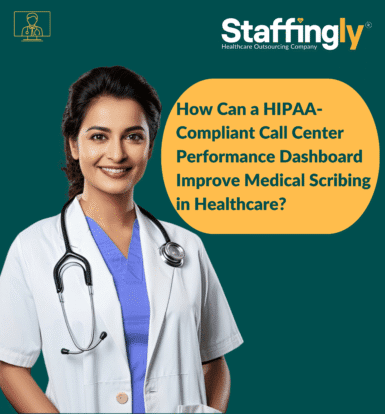
How Can a HIPAA-Compliant Call Center Performance Dashboard Improve Medical Scribing in Healthcare?
Every patient call creates data symptoms, updates, refill requests, scheduling details. But unless those details flow seamlessly into medical scribing workflows, providers are left with gaps. 💬 “We had a patient mention chest pain on the phone, but it never made it into the note. That’s a liability waiting to happen.” Traditional call handling captures messages. A HIPAA-compliant performance dashboard ensures those messages become actionable documentation that supports both clinical care and compliant scribing. Why Scribing Suffers Without Call Center
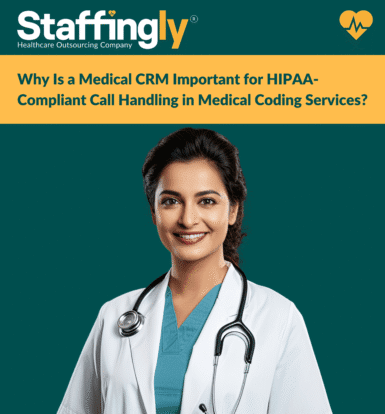
Why Is a Medical CRM Important for HIPAA-Compliant Call Handling in Medical Coding Services?
In the healthcare industry, managing patient information securely is paramount. This includes ensuring compliance with the Health Insurance Portability and Accountability Act (HIPAA) during all communications, especially when it comes to call handling. A Medical Customer Relationship Management (CRM) system plays a crucial role in maintaining HIPAA compliance while improving the efficiency of medical coding services. When used correctly, a medical CRM can help streamline call handling, protect sensitive patient data, and improve overall coding accuracy. The Role of a
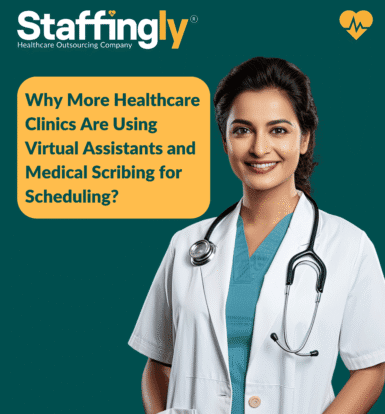
Why More Healthcare Clinics Are Using Virtual Assistants and Medical Scribing for Scheduling?
Managing patient appointments and maintaining an efficient schedule is one of the most critical aspects of running a healthcare clinic. However, as the demands of healthcare continue to grow, clinics are turning to virtual assistants and medical scribing to streamline scheduling, reduce administrative burdens, and enhance patient satisfaction. These solutions are improving clinic efficiency and reducing errors that often disrupt scheduling workflows. The Strain of Scheduling in Healthcare Scheduling is one of the most time-consuming administrative tasks in a healthcare
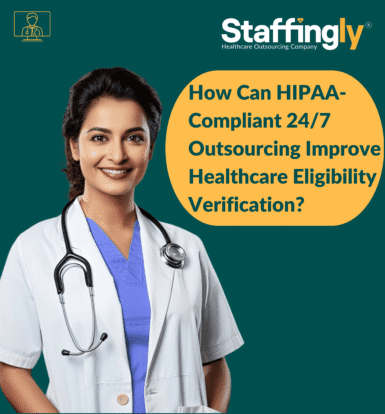
How Can HIPAA-Compliant 24/7 Outsourcing Improve Healthcare Eligibility Verification?
In today’s fast-paced healthcare environment, eligibility verification plays a crucial role in ensuring that patients receive the care they need, while healthcare providers are reimbursed appropriately. However, the process is often tedious, time-consuming, and prone to human error. With increasing demand and the complexity of insurance systems, healthcare providers are seeking efficient solutions to streamline eligibility verification. Outsourcing eligibility verification to HIPAA-compliant teams can help overcome these challenges. By leveraging 24/7 outsourced services, healthcare organizations can improve accuracy, reduce administrative
 Book a Demo to Build Your Team Today!
Book a Demo to Build Your Team Today!


 Read Case Studies
Read Case Studies 



 Virtual Medical Assistants
Virtual Medical Assistants



